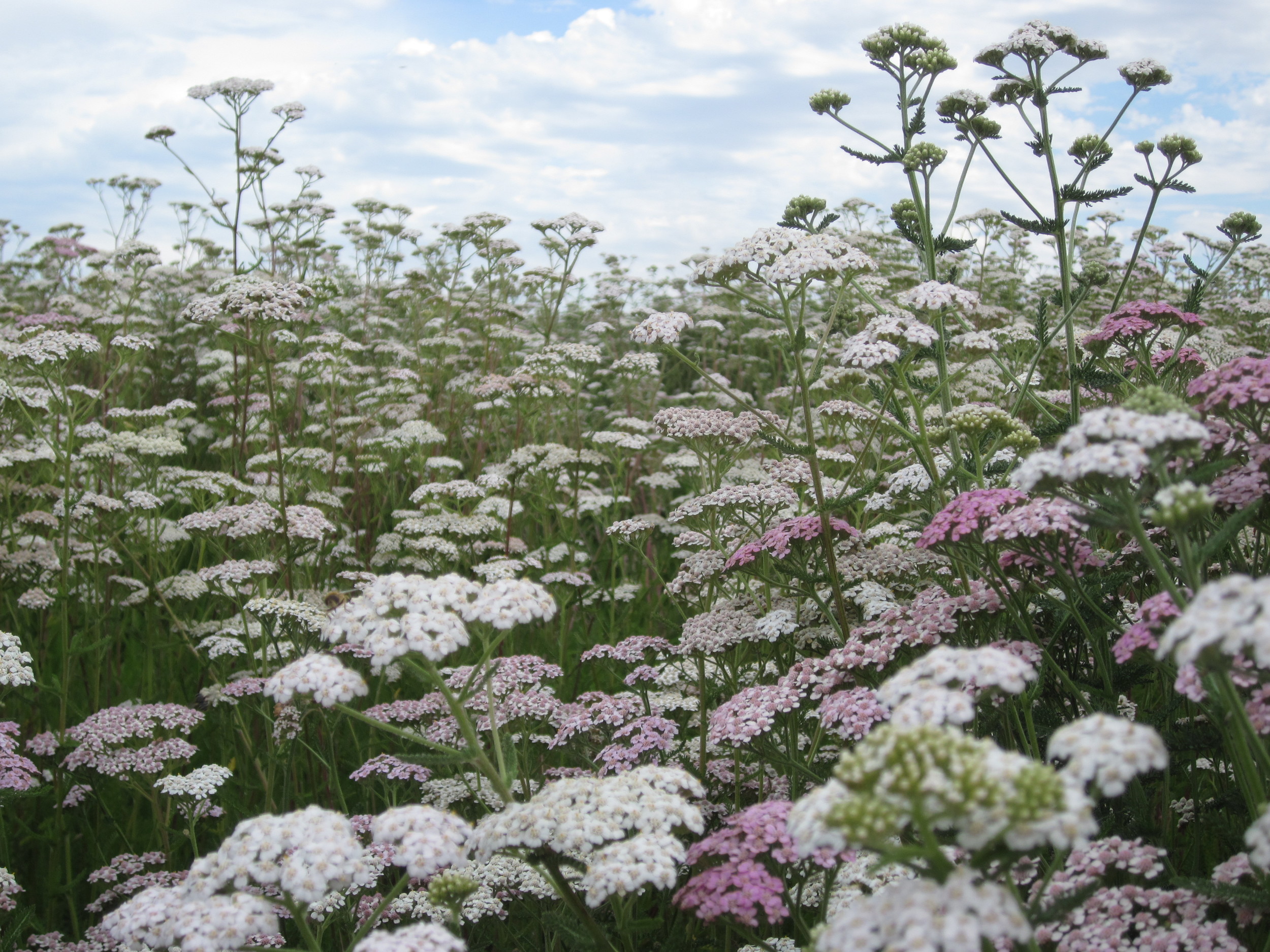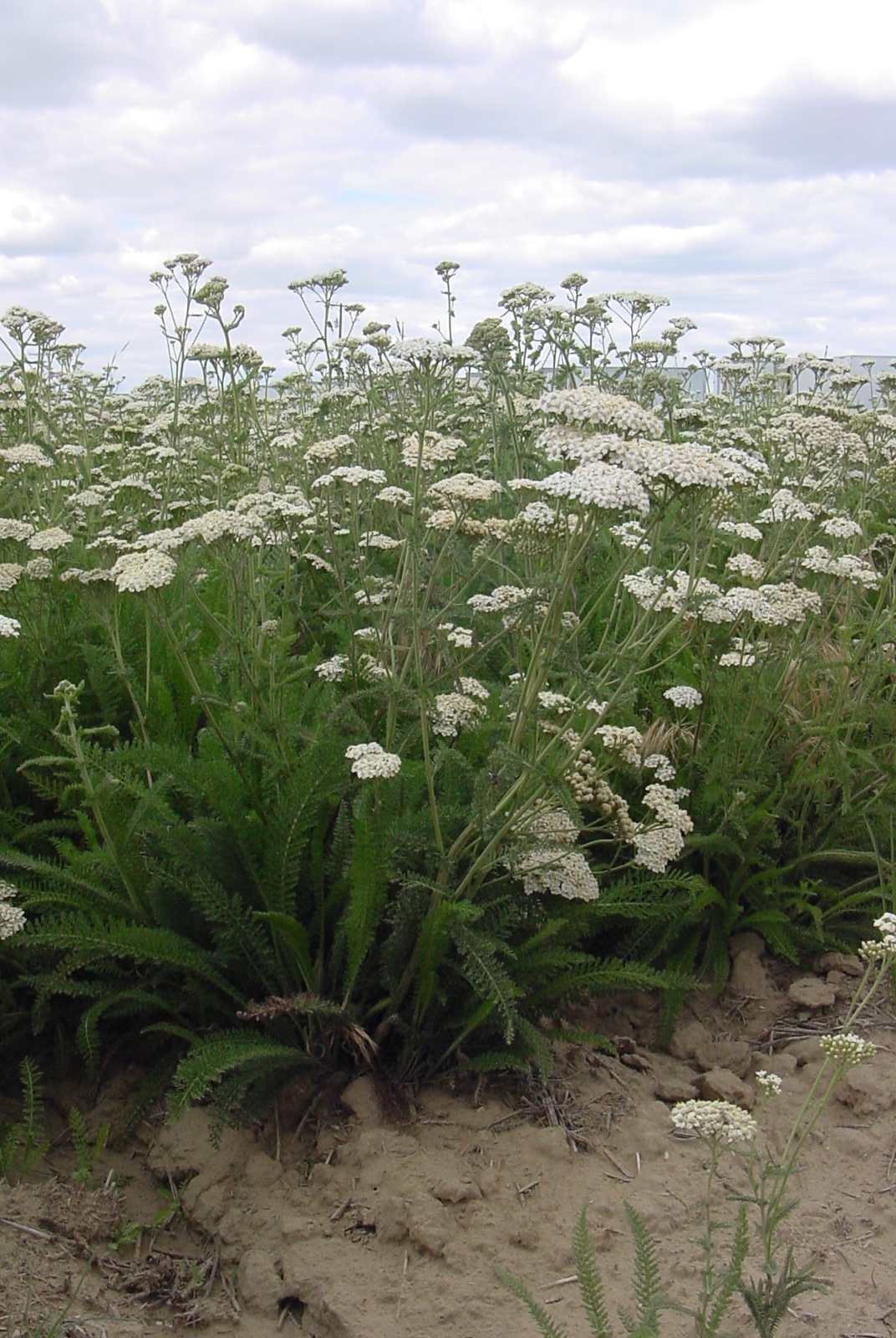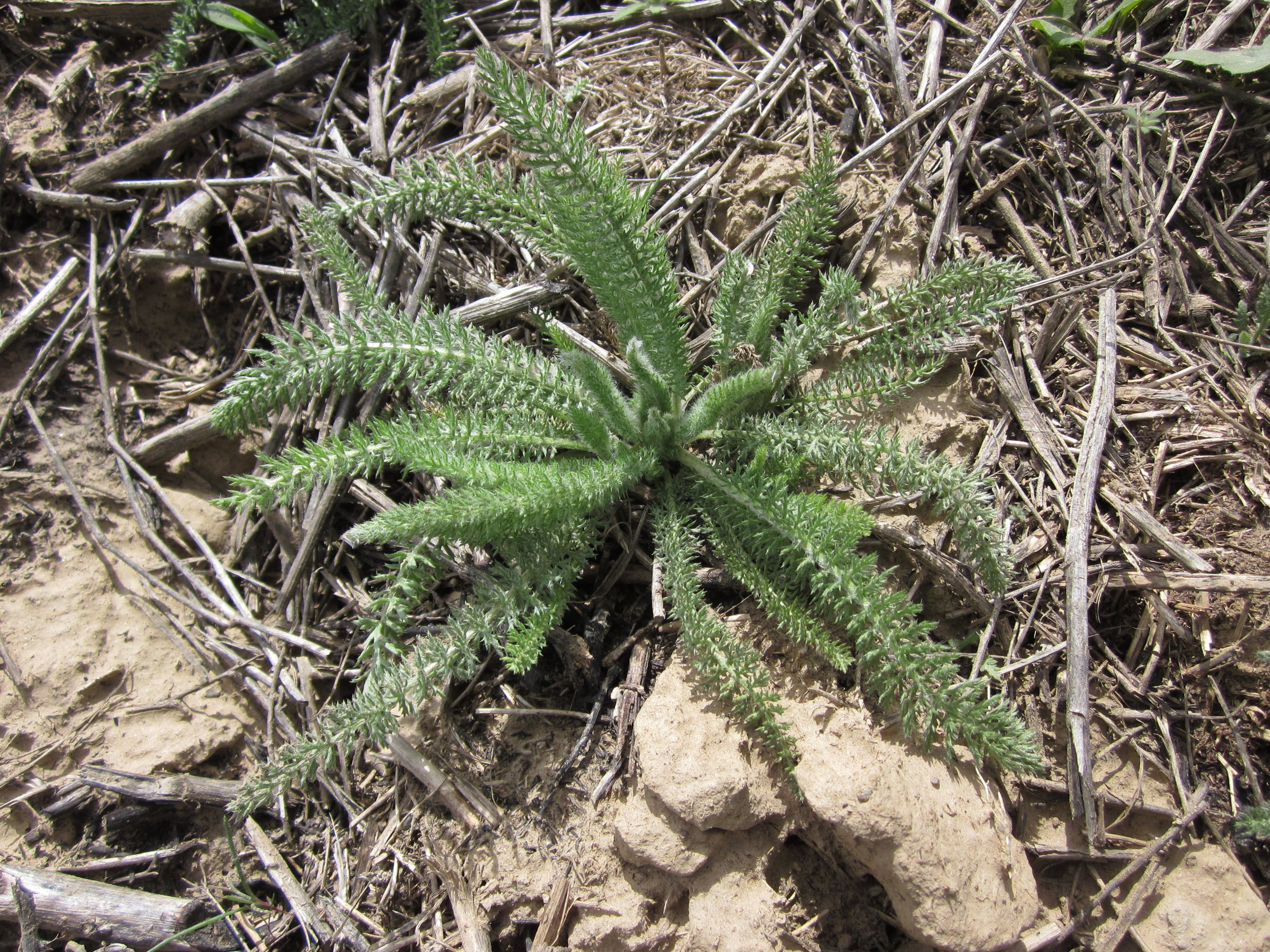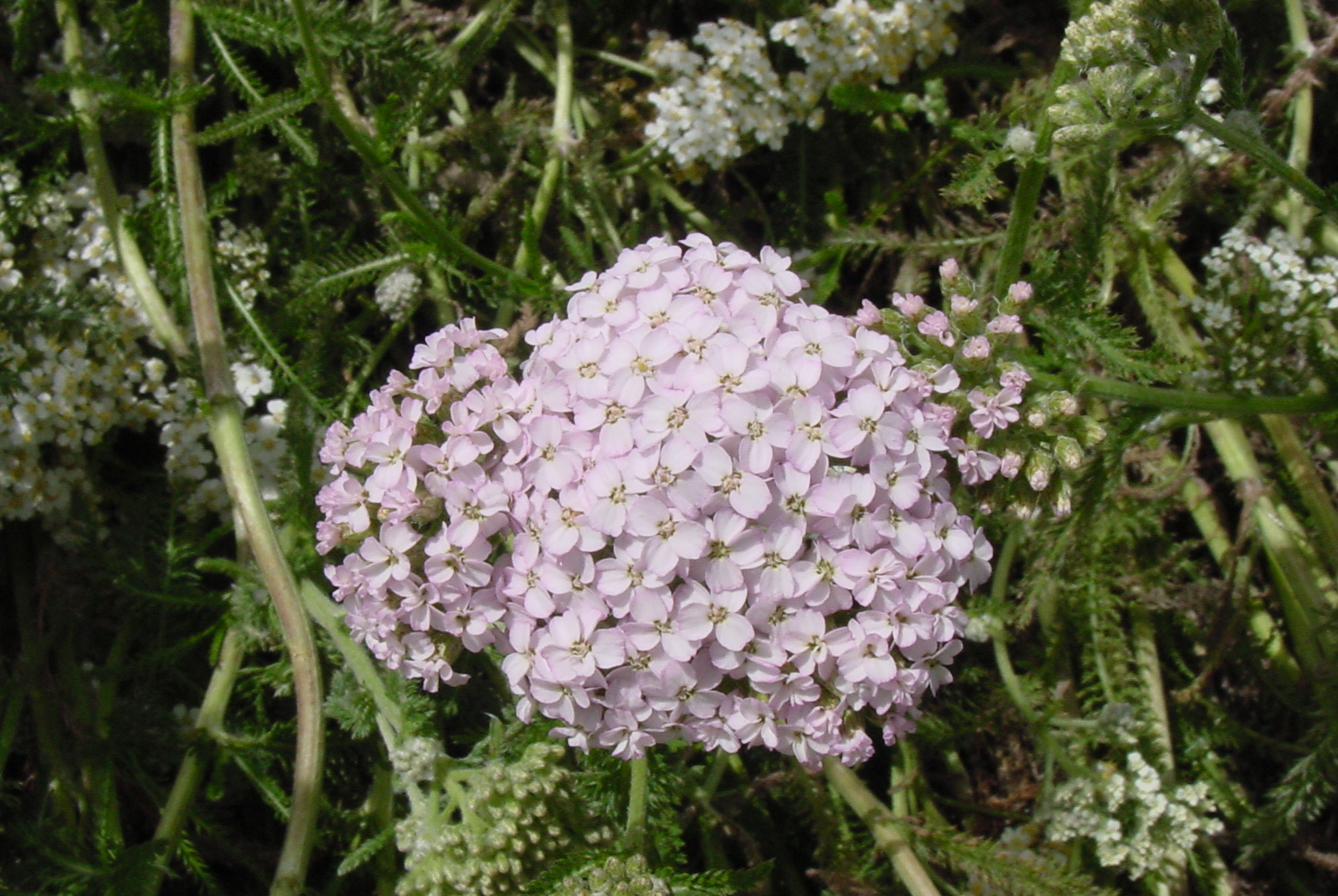Achillea millefolium var. occidentalis (Western yarrow)
Formerly A. lanulosa. Rhizomatous native perennial forb with small flat flower clusters and fernlike leaves, blooming April to October. Extremely drought tolerant, though very common throughout the U.S. on wet or dry sites. Especially important in western sagebrush-Bluebunch wheatgrass (Pseudoroegneria spicata ssp. spicata) communities. Used on shrublands, prairies, mine reclamation and roadsides at all elevations; also as an ornamental and for pollinator habitat for native bees. Competitive with weeds. Smaller and much less aggressive than the non-native White yarrow (A. millefolium). Varieties listed below.
DISTRIBUTION / ADAPTATION
INFORMATION & ATTRIBUTES
Family: Asteraceae
Duration: Perennial
Growth Habit: Forb
Native Status: Native
Growth Form: Rhizomatous
Mature Height: 36 in.
Bloom Color: White, occasionally pink
Bloom Period: Late Spring
Annual Precipitation: 6-26 in.
Drought Tolerance: High
Shade Tolerance: Medium
Elevation:
Fire Resistance: No
Fire Tolerance: High
Nitrogen Fixation: None
SOIL ADAPTATION
Coarse Texture: Yes
Medium Texture: Yes
Fine Texture: No
Salinity Tolerance: Low
CaCO3 Tolerance: Medium
pH Range: 6.0-8.0
SEEDING NOTES
Seeds per Pound: 3,400,000
Seeding Rate: 0.1-0.5 PLS lbs/acre
Season: Spring/Fall
Days to Germination:
VARIETIES & LOCAL ACCESSIONS
Columbia - Source Identified selection from Sherman County and Gillman County, OR averaging 11-13 in. annual precipitation.
Eagle - Adapted to low elevation, semiarid sites with long, hot growing seasons. Easily established. Competitive with introduced grasses and annual weeds such as cheatgrass. May establish better on arid sites than other releases. (Released 2011, origin: Ada County, ID)
Yakima - Source Identified selection from Yakima County, WA averaging 6-11 in. annual precipitation. Good establishment and persistence on semiarid lands, especially locations prone to repeat disturbance such as wildfire. (Released 2004)





